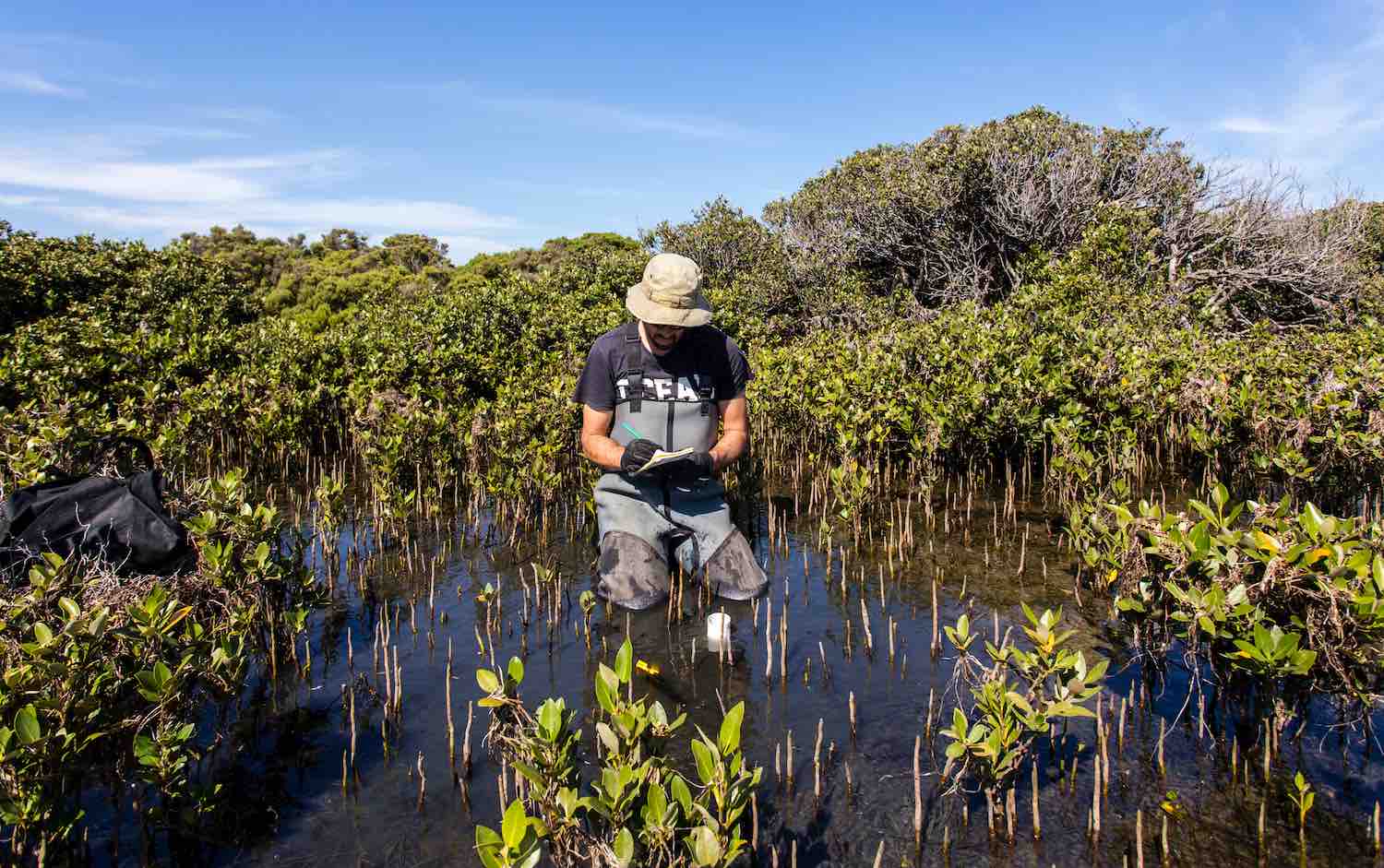ImpactAlpha, Aug. 25 – Money is pouring into climate tech funds. Separating the serious players from fund managers only toying around the edges of climate solutions: scientific bona fides.
Climate scientists are helping climate-focused fund managers at Generation Investment Management, Breakthrough Energy Ventures, Fifty Years and Lowercarbon Capital.
The grab for scientific talent is underway across the financial sector. BlackRock hired a climate scientist in May. The European Central Bank is recruiting an environmental scientist for its sustainable finance team.
David Victor, a professor at UC San Diego, said he and his colleagues “are getting all kinds of calls from people.” Victor, director of the university’s Deep Decarbonization Initiative was hired by hedge fund Engine No. 1 to assess Exxon Mobil’s strategy as part of its successful campaign to shake up the oil giant’s board. As for the new funds now staffing up, he says, “At least they’re trying to figure out what’s going on.”
Climate-focused funds “are coming to the realization that this is a mega-scale problem that requires deep understanding of the science behind it,” says Stephan Nicoleau of FullCycle Capital Partners. He says the climate-solutions fund draws on hundreds of scientists, technologists and engineers across its ecosystem.
Expertise is just the first step. “Once you have good science, the question then becomes how it translates into a repeatable and risk-adjusted investment strategy,” says Nicoleau. “New metrics for measuring climate impact and new ways of aligning that impact to performance will be the task for many of the new funds in this space.”
Deep tech
The boomlet in climate-science expertise started in the risk-driven insurance industry, which latched onto climate expertise to model weather risk. VCs, who have long valued engineering chops, are collecting talent in climate analytics, environmental engineering and organic chemistry as the contours of climate challenges, and opportunities, come into focus.
Scientific expertise can help venture funds play in the deep end of the tech pool. Most investors “are clustering around lower-impact, consumer-facing technologies like basic reuse and recycling because they don’t yet have the skill set for deeper tech,” Lowercarbon’s Chris Sacca told Axios.
Sacca has built a portfolio of innovative climate tech solutions, from carbon capture to green chemicals, that just took in $800 million in outside capital for early and later-stage climate tech startups. Lowercarbon Capital’s director of science Clea Kolster, who has a PhD from Imperial College of London in carbon capture and storage and energy systems modelling, tweeted that she is “over the moon” to be helping put capital towards “decarbonizing our global economy ASAP.”
At Fifty Years, chief of staff Alex Teng holds a PhD in environmental engineering. 50 Years’ “PhD to VC” program teaches scientists the lingo of venture capital investing as well as practices such as sourcing, due diligence, and founder support. The program has mostly targeted biotech talent but demand for climate expertise is so keen the firm is considering a similar program dedicated to climate scientists. “We believe more scientists should commercialize their research via tech startups,” the firm says.
For more entrepreneurial scientists, On Deck offers a seven-week Climate Tech Fellowship that brings together startup climate experts to build “climate-solving companies.”
Practical action
For climate scientists who have warned of the climate catastrophe with increasing urgency only to grow frustrated at the slow pace of public policy change, finance can offer a faster track to real-world change.
“I’m glad to see interest in the business world. I think it can only help us to both prepare and mitigate climate change,” said Jessica Tierney, a paleoclimatologist with the University of Arizona and a lead author on the grim recent assessment from the Intergovernmental Panel On Climate Change.
The clamor for climate expertise may not translate into private sector opportunities for all climate scientists. There will be a premium on applied sciences and the ability to map climate impacts to transition risks and opportunities, said UC San Diego’s Victor. “The world of finance is going to learn a lot about climate, and it’s going to do a better job, as opposed to the world of climate suddenly becoming high-end financiers.”
William Riley, a senior scientist at the Lawrence Berkeley National Laboratory, says, “Having more understanding of climate risks in long-term investments might do more to force the government to deal with climate change than having a bunch of scientists honing points we’ve already made over and over for the past four decades.”
Universities graduate many more climate-related PhDs each year than the academic and related job market can handle, added Charlie Koven, Riley’s colleague at the Berkeley Lab.
“Finance types tend to have the ability to make decisions that have real-world consequences, so it’s best for them to understand the climate situation,” he said. As for the talent grab, he said, “I do think its good if it’s a sign that people are actually starting to pay attention.”











